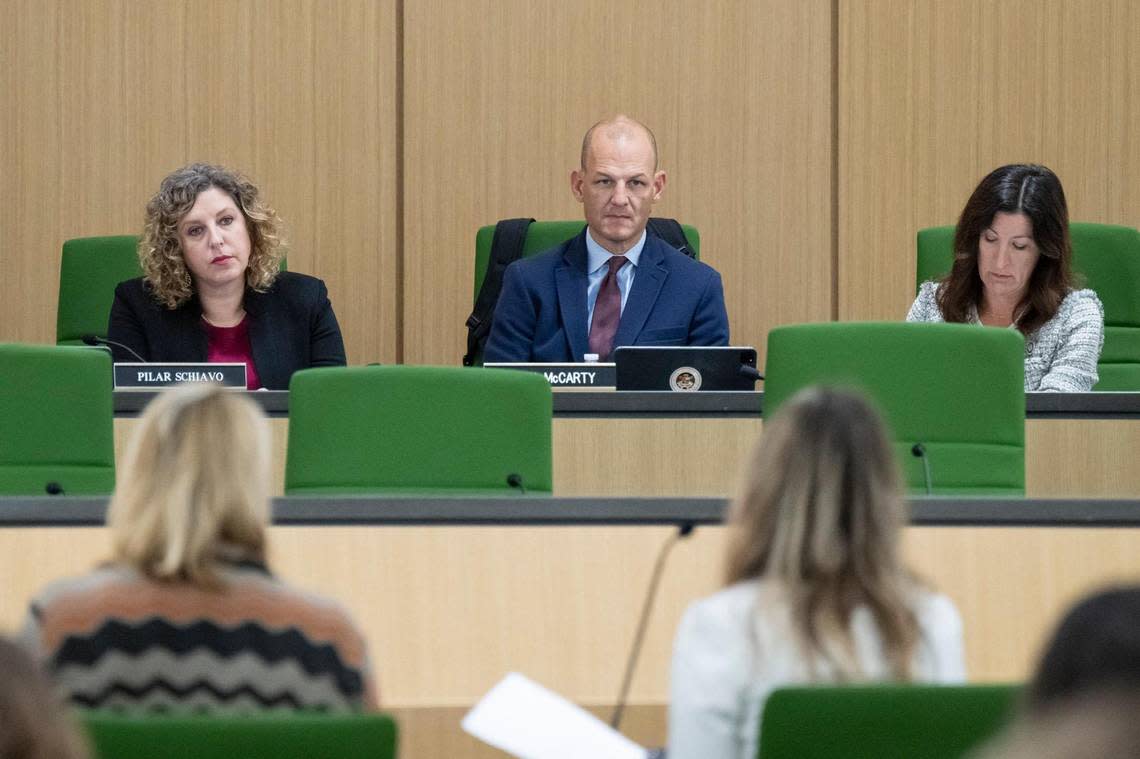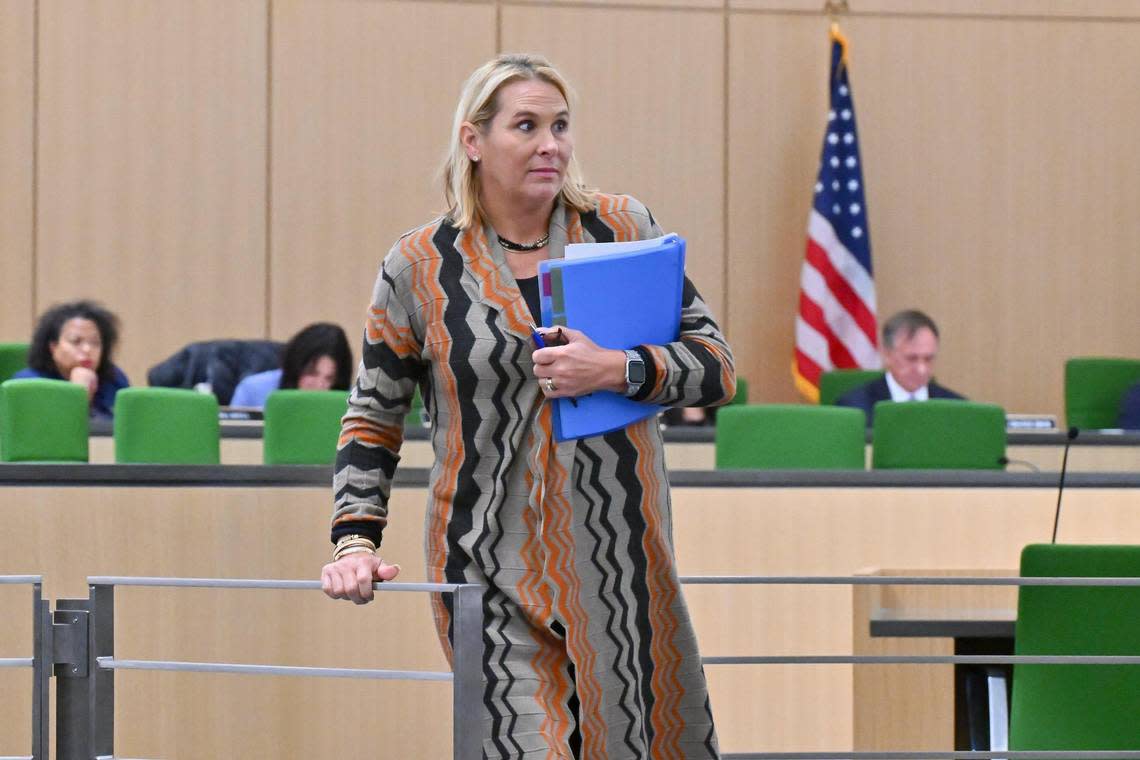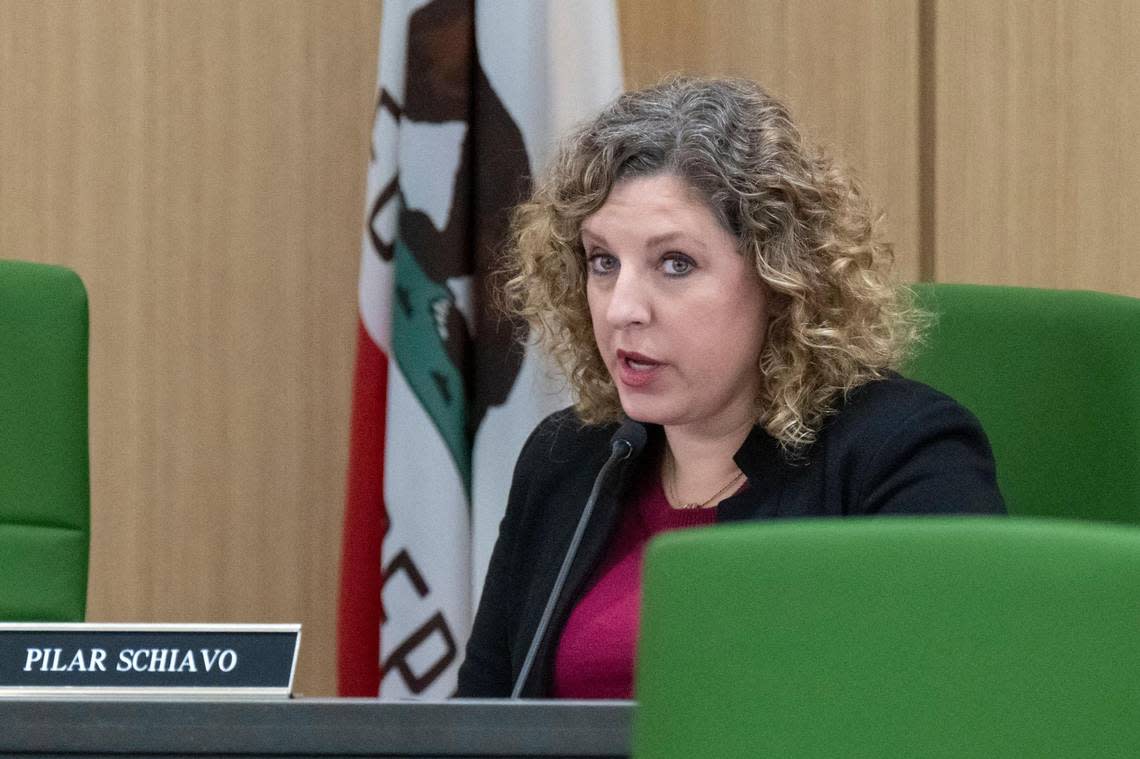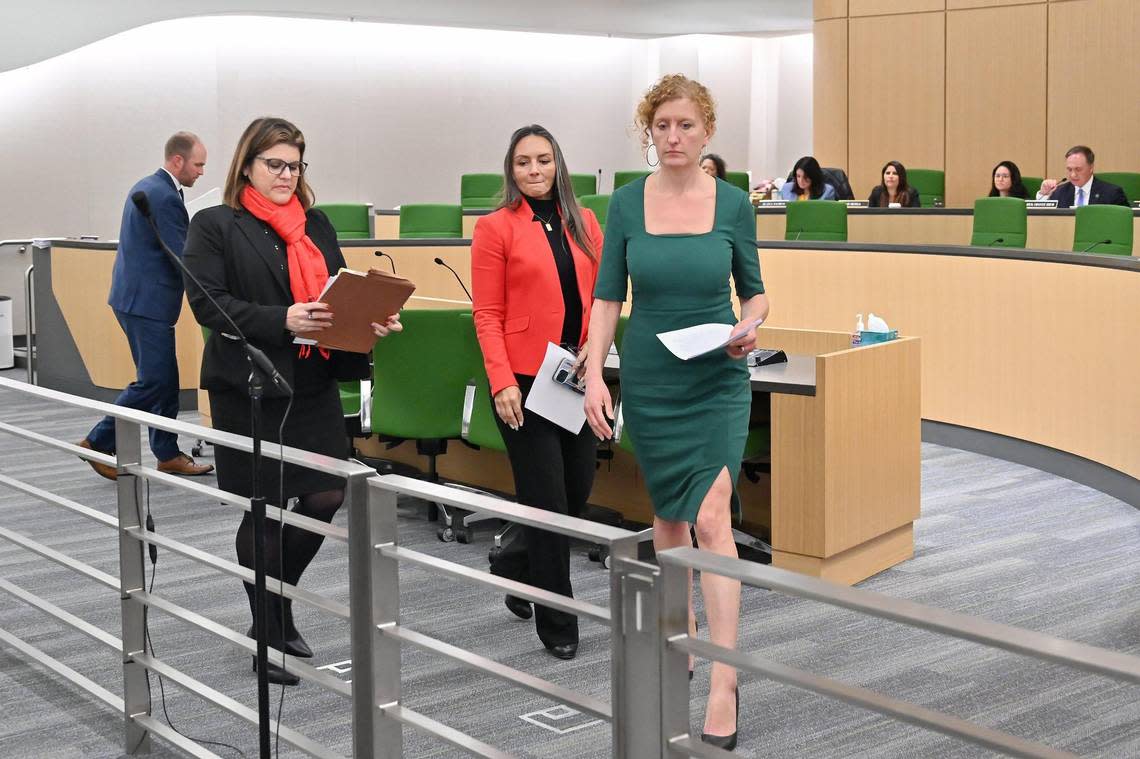California Democrats wade into retail theft politics. Why Prop. 47 puts them under pressure
California Democrats are taking on statewide retail theft, creating a dilemma for a party constantly facing “soft on crime” criticisms: how to tackle an issue of public concern without undoing criminal justice reforms.
The Assembly Select Committee on Retail Theft met for the first time on Tuesday in Sacramento, just weeks before the full Legislature returns Jan. 3.
The committee’s goal is to identify legislation to deal with shoplifting, commercial burglary and robberies. Organized retail theft and “smash-and-grab” incidents have garnered significant public attention amid a barrage of viral security videos showing brazen crimes play out at big-box retailers and small businesses alike.
It’s clear Democrats face pressure to deal with retail theft, which Assembly Speaker Robert Rivas, D-Hollister, underscored by attending part of the meeting.
But the 11-member panel — nine of whom are Democrats — face a trapeze routine between cracking down on crime and satisfying the party’s progressive flank, which is committed to preventing a return to the punitive sentencing laws of decades past.

Lawmakers want more theft data
The committee heard from policy analysts, retail industry group leaders, law enforcement and criminal justice reform advocates. They painted a nuanced picture of retail theft that only raised more questions.
Magnus Lofstrom of the Public Policy Institute of California shared the organization’s analysis of 2022 data of shoplifting, commercial burglaries and robberies. PPIC reported shoplifting rates were lower last year than they were in 2019, before the COVID-19 pandemic. But commercial burglary and robbery rates increased.
Retail theft rates also varied by county, with the Bay Area seeing the largest uptick in shoplifting from 2019 to 2022. Commercial burglary increased in many of the state’s largest counties but was down in smaller ones.
Lofstrom told lawmakers that the data is likely more accurate for serious crimes than lesser offenses like shoplifting.
“The data are limited to incidents reported to law enforcement agencies,” he said. “Retail theft is likely underreported, and especially low value theft. And this may also change over time.”
Retailer leaders said they are forced to lock up products and hire extra security to protect customers and employees, in part because of statewide inconsistencies in law enforcement responses to thefts.
Rachel Michelin, president of the California Retailers Association, said stores are “not exaggerating the problem of retail theft.” Michelin made her statement just weeks after the National Retail Federation backed off a claim that nearly half of all 2021 inventory losses came from organized retail theft.

Michelin has come under the ire of Sacramento County Sheriff Jim Cooper, who has sparred with the trade group’s leader in hearings and on social media, since fall amid highly publicized “smash and grab” robberies and a wave of so-called blitz operations by law enforcement in the capital region and across California.
Cooper, who served in the Assembly until late last year, blames Prop. 47 and Michelin’s group for a law “that over-promised and under-delivered.” Michelin, who squared off with him at a state independent oversight meeting last week, counters that law enforcement doesn’t respond to retail theft incidents.
Fact check: Are California sentencing laws to blame for recent robberies?
Lawmakers seemed interested in retailers’ concerns, but they were also frustrated by a lack of reliable data on the problems they discussed.
“I think that in order for us to actually craft the right policy, it’s so, so important for us to understand, where is this a California problem?” said Assemblywoman Cottie Petrie-Norris, D-Irvine. “And where is this a nationwide problem?”
When asked directly for data on California retail theft, Jeff Kreshek of property developer Federal Realty said retailers are reluctant to provide that information, forcing landlords like his real estate investment company to provide only anecdotal information.
“I wish could give you the data,” Kreshek said. “In preparing to come here today, I talked to 15 retailers and said, ‘I need data. I need numbers.’ And they said, ‘Oh, we can’t give you numbers.’ And notice I didn’t ... use any retailers’ names. They don’t want that in the public for whatever reason.”
Proposition 47 and retail theft
The politics of addressing retail theft flared during the nascent public discussions about potential solutions.
Proposition 47 dominated the discussion. The 2014 ballot initiative reclassified certain nonviolent crimes as misdemeanors, including commercial thefts of items under $950.
The measure was one of several that voters and lawmakers leaned on after a panel of federal judges in 2009 ordered California to reduce severe prison overcrowding. This prompted a series of new laws undoing tough-on-crime sentencing from the 1980s and 1990s, many resulting in ballooning incarceration of Black and brown Californians.
But Republicans and moderate Democrats have recently been pushing for changes to Prop. 47, saying it’s not doing enough to prevent crime, especially retail theft.
“I swear that people in my district, the one (law) they know the number of is Prop. 47,” said Assemblywoman Pilar Schiavo, D-Santa Clarita. “But I find that there’s a lot of misinformation around this in the narrative in the community.”

As Schiavo and others pointed out, under-$950 thefts are still punishable by up to six months in jail.
But Michelin suggested changes similar to those in a ballot initiative her organization supports. It would make theft with two or more convictions a felony and make a fourth conviction eligible for prison time. The proposed initiative would also allow aggregation of multiple thefts by one person, making it easier to surpass the $950 threshold.
The shift would require changes to Proposition 47, necessitating approval by voters. Walmart recently contributed $500,000 to the organization backing an initiative.
Criminal justice advocates pressed for caution around amending Prop. 47, saying it is working effectively to fund community-based programs. Lenore Anderson, president of Californians for Safety and Justice, said those worried about retail theft should also examine a lack of law enforcement information-sharing, court backlogs, and poor investigation and prosecution of property crimes.

“The retail theft issues that people are presently most concerned about, from smash-and-grab mobs to organized retail crime, are felony conduct,” Anderson said. “These crimes are not the purview of Proposition 47.”
Assemblywoman Mia Bonta, D-Oakland, also urged her committee colleagues to remain focused on claims backed up by data. She said her East Bay community is concerned with smash-and-grabs and businesses closing. But, she said, constituents are also worried about mass incarceration.
Bonta reserved special frustration for Ivy Fitzpatrick of the Riverside County District Attorney’s Office, who said county jails are “busting at the seams” because they are running out of room to hold low-level offenders.
“We have not been basing the assertions that we’ve been making on facts,” Bonta said. “To say that we are busting at the seams in our county jail system, without any data, unfounded, is doing a disservice to this community, to this to this Legislature and to this body.”
“We have to be clear on setting the baseline set of information that we can all operate from in order to be able to come up with solutions,” she added.
